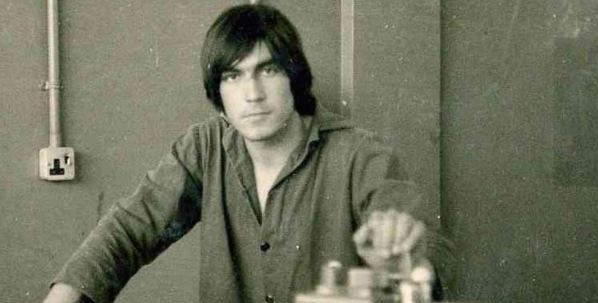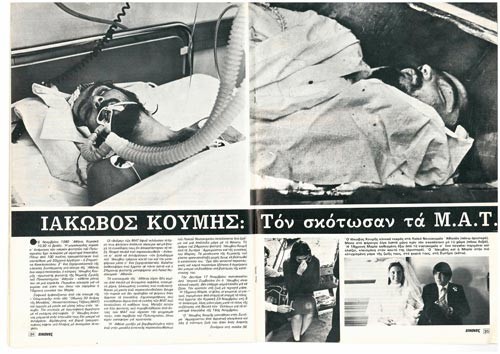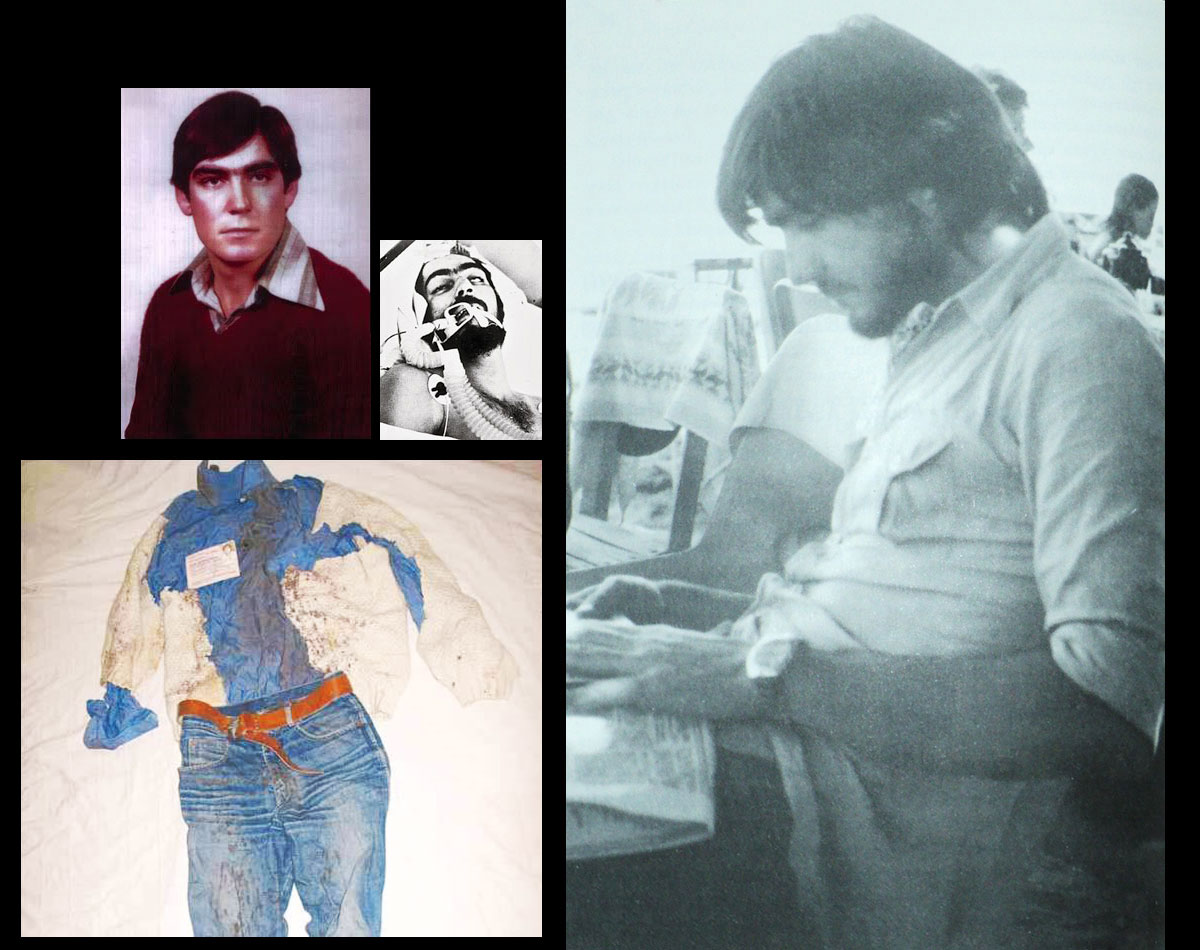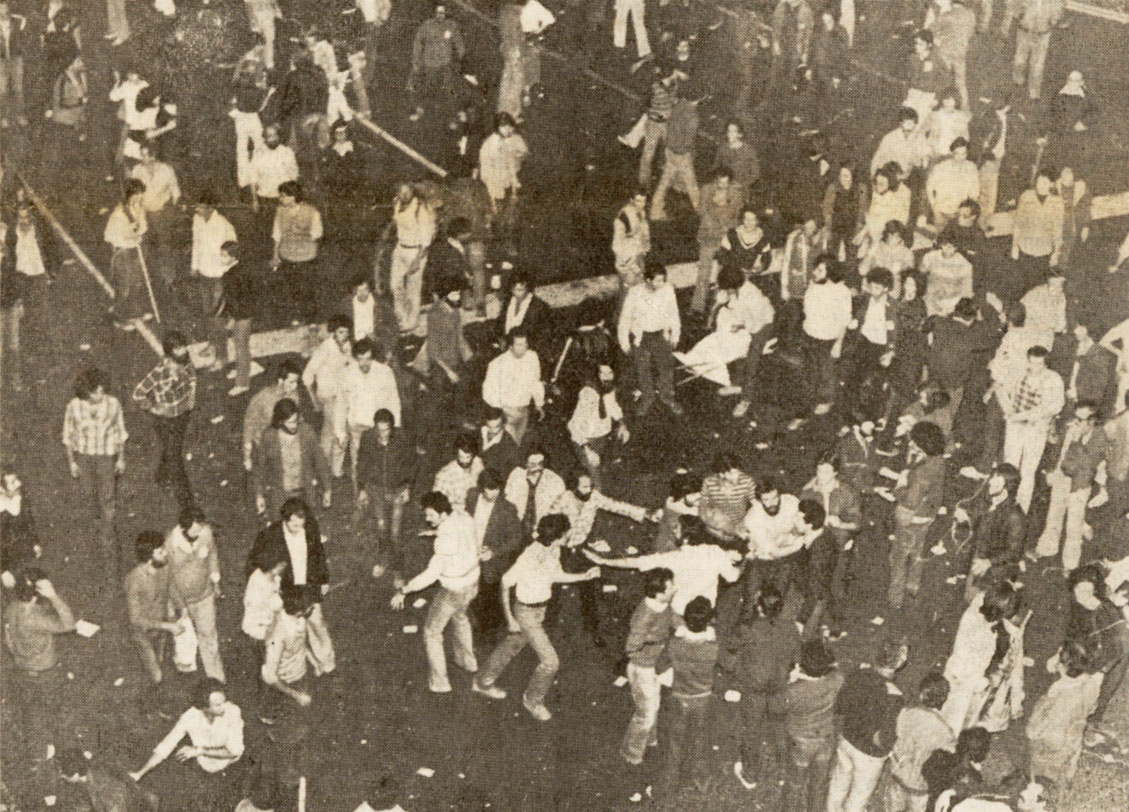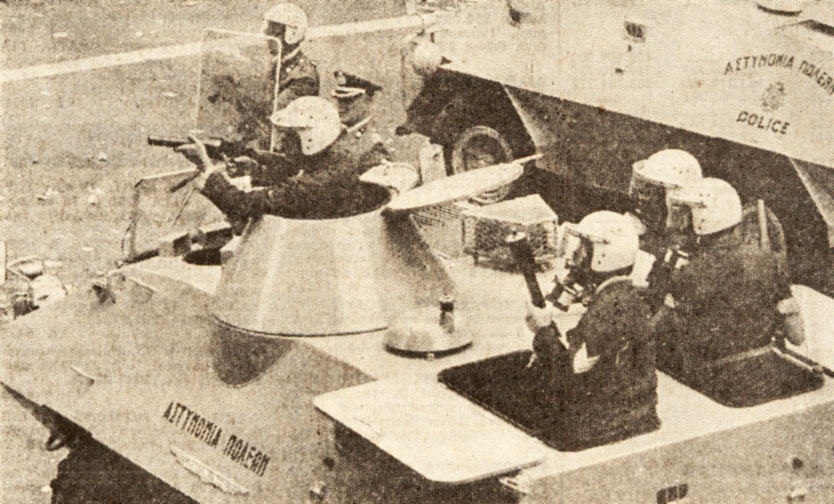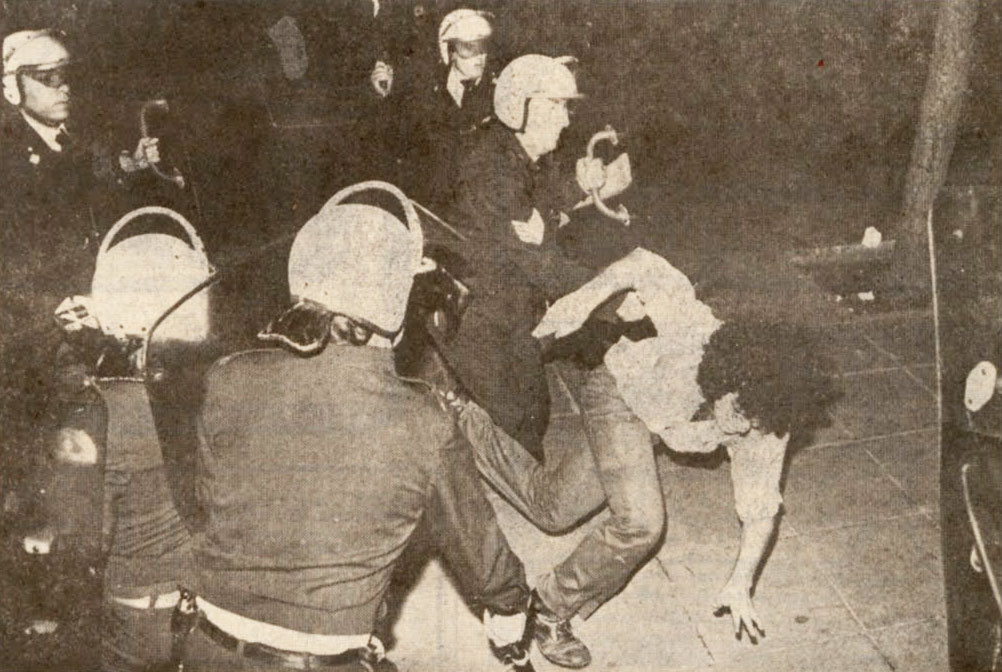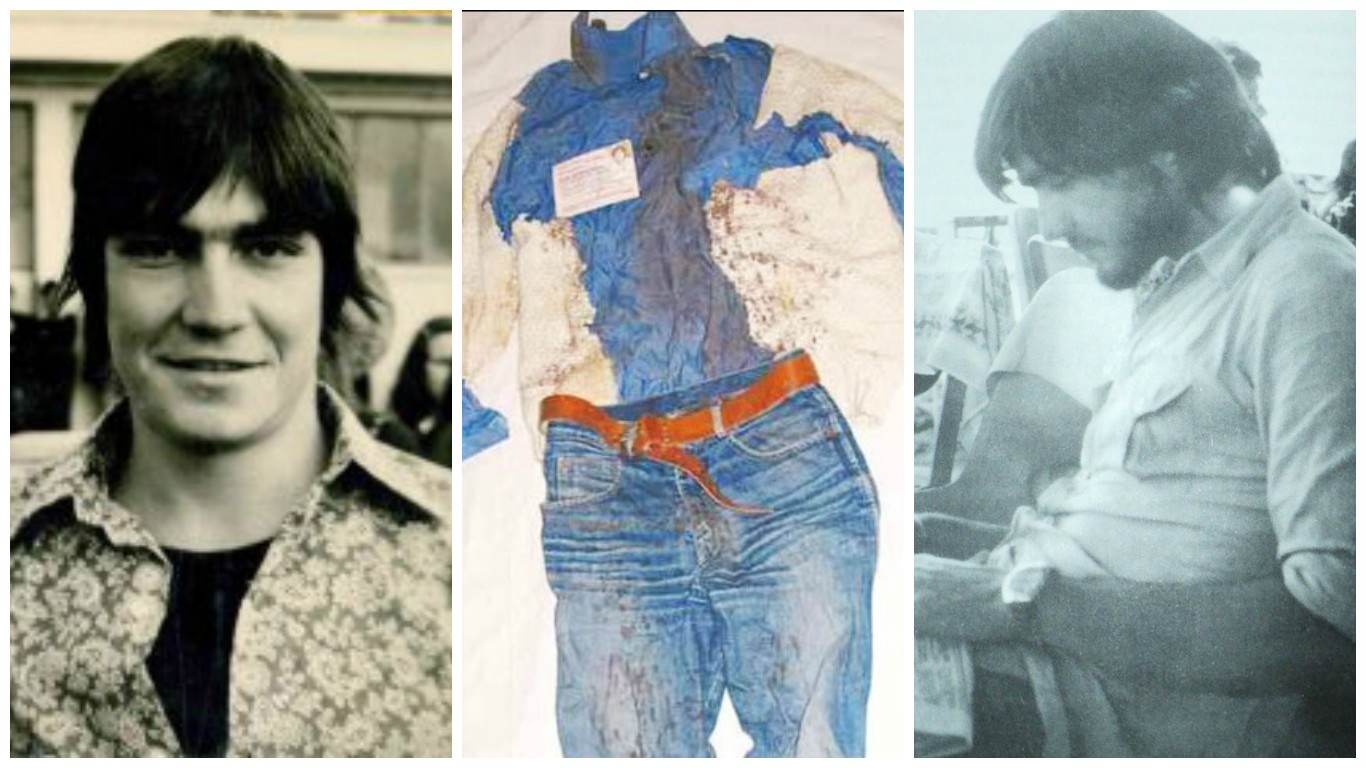On November 16, 1980 in Athens, two protesters fell victim to police violence. The Cypriot student Iakovos Koumis and the Athenian worker Stamatina Kanellopoulou are the two dead of the bloodiest march of the Polytechnic, which took place 7 years after the black anniversary. On November 23, Iakovos breathes his last at the People's Hospital of Athens. In 2012, Sotira's hometown hosted an event in his honor, 32 years after his death.
The facts
The Ralli government had banned him from heading to the US embassy that year, and according to the ban, protesters were only allowed to reach the Constitution and disperse there. The majority of the EFEE was disciplined but several thousand protesters decided to follow the left minority of the EFEE (PPSP, AASPE, EKON Rigas Feraios-B 'Panhellenic etc.) trying to continue to the American embassy.
"The procession went up Stadiou Street, continued in Syntagma Square. The "order restoration forces" were lined up at the height of the parliament. Then the protesters' bloc took the first steps towards the formation of the MAT and then they attacked.
The crowd was large. MATs then turned the center of Athens into a real slaughterhouse with two dead protesters (Kanellopoulou, Koumis), at least two police officers wounded, hundreds of broken heads, arrests, etc.
Stamatia Kanellopoulou, a 20-year-old worker, was found fallen on a sidewalk on Panepistimiou Street and badly beaten by police. She was taken unconscious to Hippocrates, where she died before her doctors offered first aid.
The 26-year-old Cypriot law student Iakovos Koumis He was found in Syntagma Square with severe craniocerebral injuries from a globe, served in the "People's" and died a few days later, on November 23. Witnesses said he did not take part in the march but that he was watching from the sidewalk.
At 10 pm on the same day, Andreas Papandreou states: "Small groups of irresponsible elements and provocateurs of unknown and suspicious origin created sad diversions with the obvious aim of tarnishing and discrediting the great popular anniversary of the Polytechnic.". Far-left organizations accuse him of helping the ND government "as if it had taken over the Ministry of Public Order from now on" (Proclamation of the Polytechnic Initiative Group '80). (The Step) The government has limited itself to expressing its anger at the "Organized groups of anarchist and extremist elements" που "They tarnished the great popular anniversary and brutally provoked the democratic and peaceful feelings of the entire Greek people", merely stating that "administrative inquiries have been ordered into the circumstances in which the death of a young worker occurred".
One week later, a long debate took place in Parliament. "And the Archangel Michael holds a sword in his hands to defend himself against the demons. It does not hold flowers ", said G. Rallis.
While Giannis Zigdis: "The main reason for the bad is that the government maintains a House that is a disgrace, the MAT. This is not a police, this is an ES-ES Corps, it is worse than the ESA, its members are criminals, not that people were born criminals, but they are trained to become criminals. I saw them in Rhodes, where they attacked a people who made a peaceful parade. They attacked with such rage that I have not seen even the Italian fascists, when I was a child in Rhodes (…) Let us have a special meeting on whether a Republic can maintain state organs, such as MAT. These are only for the 'Hitlers', only for the 'Mussolini'. It is inconceivable that they exist in a democratic state. ".
In the same discussion, Papandreou and Florakis were content with suggestions about the place and time during which police forces should open the heads of protesters. "It would be really possible for the Police at the scene of the conflict to maneuver in such a way as to cut, I repeat, the bodies of 2.000 extremists and confront them there.", said Andreas Papandreou.
An EDE was ordered for the deaths, which did not end anywhere. The perpetrators of the two deaths went unpunished as those accused by police of the November 16, 1980 incidents were acquitted seven years later.
Iakovos Koumis
(From an event held in May 2011 in Athens for the Cypriot law student Iakovos Koumis, who was assassinated by the MAT in 1980 on the way to the anniversary of the Polytechnic uprising.)
Titled "Iakovos Koumis 1956-1980, Thirty Years Is Not Enough to Forget", organized by "Tetradia" magazine, the association "Friends of the Fire Department", the "Initiative for National Self-Determination and Social Solidarity" and the bookstore of his wife, Maria Koumi "The Fairy Tale" invited friends, acquaintances and strangers to talk about the short life of the young student who went missing so unjustly in May 2011.
The occasion for the event was an extensive tribute to Iakovos Koumis published in the magazine "Notebooks of Political Dialogue in Research and Criticism". The author and director of the magazine, Loukas Axelos, the author, announcer of the radio station of the Polytechnic, Dimitris Papachristos, and Koumis' partner, Pavlos Hatzipavlou, spoke about Koumis. The discussion was moderated by Dr. Petros Papanikolaou.
"Thirty years after his assassination, we wanted to deal with the short life and the dense events of Iakovos Koumis," says Loukas Axelos. "We dealt deeply with the undefeated Koumi and found an image of a remarkable, thoughtful and politicized young man, with a fairly clear ideological and political orientation, unequivocally committed to the struggle for the liberation of Cyprus, with a critical attitude and attitude towards social, political and thirst and appetite for knowledge, but -at the same time- of a young man with clear poetic-literary orientations, which can be judged without postfestum graces, not as the trivial samples of a likeable new lyricist, but as prototype samples of a potentially remarkable creator of those who were rescued… »
Short stay in Athens…
During the short period of its establishment in Athens, we met through the project of "Notebooks". "We caught up and made an excursion to Nea Makri, when a week before he was murdered together with our friend Pavlos Hatzipavlou and our wives, Angela, Daphne and Maria, wandering around the oranges and lemons of my paternal estate," recalls the magazine's director. Together with our other comrades we lived that year on the three days of the anniversary of the Polytechnic, at the "table" of the "Notebooks" and the "Work". On Sunday, November 16, we went down early to the Polytechnic to participate in the march, as it happened. "Iakovos' obsession for participation in the process is characteristic," his first ", as he put it in Pavlos", continues L. Axelos. "When the arrival of all of us was over, we started towards the American embassy. But the events took on explosive proportions. Having been cut off from the rest, we found ourselves in the Propylaea, our companion Giannis Kargiotis, Iakovos and I, relatively far from the center of the conflicts in Syntagma and Vasilissis Sofias and since Iakovos was essentially ignorant, not only of Athens but also of police violence, we deemed it appropriate to disband and return to our homes.
It was 10 to 10:15 at night when we broke up. Alas. It was forever… Late at night I was notified that Iakovos had been killed by the MAT in Syntagma ". To this day, no one knows why Iakovos Koumis decided not to return directly to his home that fateful night. He headed to Syntagma Square and there, sitting in a chair, he was killed in the back by the MAT, with a key stroke of the brain, as the Italian medical examiner Durande wrote. According to eyewitness accounts, including his good friend Lefteris Rizas, a member of the "Notebooks", the young student had not lost consciousness completely. During the transport to the hospital by ambulance, although he was literally bathed in blood, he managed to say: "They do not have their God, they ate me".
He arrived at the People's Hospital clinically dead. One week later, on November 23, Iakovos Koumis passed away…
The killers were not found
His body was transported to Sotira to be finally buried there on November 26 in a charged atmosphere and wide popular participation. At the same time, in Nicosia there was a trisagion with the participation of political representatives and delegations from Cyprus and Greece, but without the official presence of the Greek and Cypriot governments, or the Greek embassy. This angered the crowd, who marched spontaneously towards the Greek embassy.
On the same day as Iakovos Koumis, 20-year-old worker Stamatina Kanellopoulou was murdered. Although the relatives of the two murdered young men filed lawsuits to find the culprits and punish them, neither was able to move forward because it was not possible to identify any of the killers.
Who was Iakovos Koumis?
He was born in 1956 to poor peasant parents in Sotira, Famagusta. He graduated from technical school and after his military service he worked at the Petroleum Refinery in Larnaca, while at the same time he graduated from the Night High School in order to get a diploma and go to the Law School of the University of Athens.
According to Lucas Axelos in his text included in the "Notebooks", it is obvious that the above (work, army, technical school, night school) extended the cycle of his student studies by a few years, as a result of which he enrolled in the 24-year-old university. , that is, when the rest of his peers were normally graduating.
Koumis survived the Turkish invasion. His reaction was immediate, participating in the anti-occupation mobilizations, while at the same time he was actively active in the Cyprus Self-Determination Committee. Later, he joined the left-patriotic circle created by "Ta Ochtovriana", the first left-wing, radical and patriotic bookstore in Cyprus. In 1978 he joined and participated in the political group Ergasia, with which they published the first issue of the magazine "Tetradia", which was dedicated to the Cyprus issue. Shortly before coming to Greece, in 1980 he married his roommate Maria Kaikki. In the same year, he enrolled in the Political Department of the University of Athens. He finally settled in Athens with his wife, in an apartment in Sepolia.
His involvement in student events was immediate. From the first moment, he approaches them and comments on them critically in his Political Diary. Indicatively, two days before his assassination, he wrote: “The Greek student movement is suffering from a morbid politicization. Bad ideas are expressed in many words without substance. "This is the first impression I had."
He himself prophesied a month earlier:
I am looking for a drop of freedom in your steps
and you are denied your interests…
